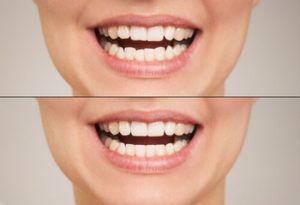Not all veneers are the same. Some can make your smile shine, while others may cause problems. Have you ever wondered what sets bad veneers apart from good ones? Choosing veneers is a big step, and knowing the difference can save you from future headaches. In this post, we’ll explore how veneers can impact your teeth and what to look out for.
What Are Veneers?
Veneers are thin shells designed to cover the front surface of teeth, enhancing their appearance. In cosmetic dentistry, dental veneers are commonly made from porcelain or composite materials. These types are chosen based on individual needs, offering tailored solutions for a brighter, more confident smile.
What Are Bad Veneers and Why Do They Happen?
How to Spot Signs of Bad Veneers
It’s important to know when something isn’t right. Signs of bad veneers include uneven edges, mismatched colours, or bulky shapes that don’t look like real teeth. You might also notice spaces where food gets stuck, making it harder to keep your teeth clean. These signs not only affect your smile but could also harm your dental health.
The Impact on Natural Tooth Structure
When veneers are poorly placed, they can damage your natural tooth structure. Good veneers should preserve as much of your original teeth as possible, but bad ones may require excessive filing. This weakens your teeth and increases the risk of long-term problems. Protecting your natural teeth should always be a priority.
The Risks of Tooth Decay and Gum Disease
Low-quality veneers can block proper tooth cleaning, causing tooth decay and gum disease over time. If veneers don’t fit well, they create gaps where plaque and bacteria can build up. Over time, this can lead to serious oral health issues, including cavities and inflamed gums. Keeping your mouth healthy means choosing veneers that fit just right.
Why You Might Feel Tooth Sensitivity
If you’re feeling sharp or dull pain when eating hot or cold foods, your veneers might be the culprit. Bad veneers can expose parts of your teeth that should be protected, causing sensitivity. This discomfort can be a daily annoyance and may point to underlying issues with your veneers.
Protect Your Smile with the Right Veneers
Understanding what goes wrong with bad veneers can help you avoid these issues. Working with a skilled dentist ensures that your veneers fit well, look great, and keep your teeth healthy. A little care now can save you from bigger problems later, helping you enjoy a strong, beautiful smile for years.
What Makes Good Veneers So Special?
Good veneers are a game-changer for anyone looking to improve their smile. These high-quality veneers not only enhance the look of your teeth but also feel comfortable and natural. They are shaped to look just like your natural teeth, giving you a smile that fits and feels wonderful.
How Good Veneers Boost Your Dental Health
Good veneers do more than just make your teeth look nice. They also play a big role in protecting your dental health. By covering damaged or worn-down teeth, they help prevent further wear and tear. This extra layer keeps your teeth strong and reduces the risk of problems like cracks or chips.
Enjoy the Confidence of a Healthy Smile
When your smile is healthy, it helps you feel more confident. High-quality veneers are designed to match the colour, size, and shape of your teeth, ensuring they look as natural as possible. When you’re happy with your smile, you’re more likely to show it off, boosting your self-esteem in social and professional settings.
The Connection Between Good Veneers and Oral Health
Maintaining good oral health is easier with veneers that fit properly. High-quality veneers work in harmony with your gums, helping to prevent issues like gum irritation or swelling. They also make it easier to brush and floss, which keeps your teeth and gums healthy. With proper cleaning and care, veneers can be a lasting part of keeping your teeth healthy.
Protecting Your Teeth with High-Quality Veneers
One of the biggest perks of good veneers is their ability to protect your original teeth. They act as a shield, guarding against damage and wear. Whether you have a cracked tooth or slight gaps, veneers can provide the extra support your teeth need while improving their appearance.
Long-Lasting Results for a Brighter Smile
Good dental veneers are meant to last. With the help of a skilled dentist, they can stay looking great for many years. Investing in high-quality veneers means you’ll enjoy a brighter, healthier smile for the long term, with fewer worries about replacements or repairs.
The Secret to a Lasting Smile
Your path to a brighter smile begins with picking the perfect veneers.
By opting for high-quality veneers, you’re not just enhancing your smile—you’re also protecting your dental and oral health. With the right care and regular check-ups, your veneers will help you enjoy a smile that’s as functional as it is beautiful.
What Sets Porcelain Veneers Apart from Composite Veneers?
Porcelain Veneers: Strong and Long-Lasting
Porcelain veneers are known for their strength and durability. These veneers closely mimic the shine and texture of real teeth, giving you a natural and polished smile. One of their biggest perks is their resistance to stains, meaning your morning coffee or evening glass of wine won’t dull your bright smile as quickly.
Composite Veneers: A Quick and Flexible Solution
Composite veneers, made from composite resin, offer a different set of benefits. They can be applied in a single visit, making them a faster option for those eager to enhance their smile. While they might not last as long as porcelain, composite veneers are easier to repair if they chip or crack.
Veneers vs Other Options: Why Material Matters
Choosing between porcelain and composite veneers often comes down to your lifestyle and needs. Porcelain veneers are ideal if you’re looking for a long-term solution with minimal maintenance, while composite veneers are perfect for those seeking a more budget-friendly or quick fix. Comparing the two can help you decide which is best for your smile journey.
How Composite Resin Stacks Up
Composite veneers made from resin are versatile and can be easily shaped to fit your teeth. They’re a great option if you need minor adjustments to your smile, such as fixing small gaps or chips. Though less expensive upfront, they may need more frequent touch-ups compared to their porcelain counterparts.
Why Quality Materials Mean a Healthier Smile
Both types of veneers can transform your smile, but choosing the right material is key to long-term satisfaction. High-quality porcelain veneers provide a lasting solution that protects your teeth, while composite veneers offer flexibility and quicker results. Whatever you choose, the right material can make a world of difference for your dental health and confidence.
Making the Right Choice for Your Smile
Deciding between porcelain and composite veneers doesn’t have to be overwhelming. Understanding the pros and cons of each material will help you choose what works best for your needs and lifestyle. Whether you prioritise durability or flexibility, both options can give you a smile you’ll love.
What Are Temporary Veneers?
Temporary veneers are like a sneak peek into your future smile. They’re placed on your teeth while your permanent dental veneers are being custom-made in the lab. These temporary covers help you adjust to how your new smile will feel and look.
Why Do Dentists Recommend Them?
A cosmetic dentist often uses temporary veneers to let you experience your new smile. They give you and your dentist a chance to tweak the shape, length, or look before the final veneers are made. This step ensures the permanent ones fit perfectly and match your aesthetic goals.
How Do Temporary Veneers Work?
These veneers are typically made from a soft material that’s easily moulded to your teeth. They’re attached using a mild adhesive, which means they’re not as strong as the final veneers. You’ll need to be a bit cautious while eating or brushing during this phase.
Benefits of a Trial Run
Temporary veneers let you experience the transformation early, helping you feel confident about the changes. Your dentist will adjust the veneers based on your comments, making sure they fit and feel perfect for you.
The Path to Your Perfect Smile
With temporary veneers, you get to take your new smile for a spin. This trial run helps refine the final look, ensuring your permanent veneers are everything you hoped for.
What Happens During a Dental Veneer Procedure?
If you’re thinking about getting dental veneers, it’s normal to wonder what the process involves. This treatment can enhance your smile by addressing issues like crooked teeth or discolouration. Let’s walk through the steps you can expect during this journey.
Consultation: The First Step to a Better Smile
The process begins with a visit to an experienced cosmetic dentist. At this visit, your dentist will inspect your teeth and talk about your dental goals, such as achieving a more uniform appearance or complementing a recent teeth whitening treatment. This step ensures veneers are the right fit for your needs and helps set clear expectations.
Preparing Your Teeth: Getting Ready for the Veneers
Once you and your dentist agree on the treatment, the next step involves preparing your teeth. This usually includes removing a thin layer of enamel from the surface of your teeth. This step creates space for the veneers to fit naturally and ensures they blend seamlessly with your smile.
Your dentist may also take impressions of your teeth at this stage. These moulds are sent to a lab where your veneers will be custom-made to suit the size, shape, and colour that suit your smile best.
While waiting for your permanent veneers, you might be fitted with temporary ones.
Fitting the Veneers: The Exciting Part
This stage is crucial as it transforms your smile. Whether you’re fixing crooked teeth or enhancing your overall look, the final result is often a brighter, more polished smile.
Fine-Tuning and Follow-Up
After your veneers are bonded, your dentist will shape and smooth them for comfort and a natural look. You may have follow-up appointments to make sure they’re working well. It’s also a chance to address any minor concerns, ensuring your smile meets your expectations.
Your New Smile Awaits
The dental veneer procedure is a straightforward yet transformative process. From consultation to the final fitting, each step is designed to provide you with a smile that boosts confidence and enhances oral health. With guidance from an experienced dentist, you’ll be on your way to enjoying a stunning, natural-looking smile.
Call Us for High-Quality Veneers
Good veneers can give you a smile you’ll love, but bad veneers may cause discomfort or harm your teeth. It’s important to know the difference and choose what’s best for your dental health. Understanding bad veneers vs good veneers helps you make the right choice for long-lasting results. If you’re ready for a change, call us today at 07 4801 7035. We’re excited to help you get a shining, healthy smile!
References:
https://www.webmd.com/oral-health/veneers
https://www.dentalhealth.org/veneers



